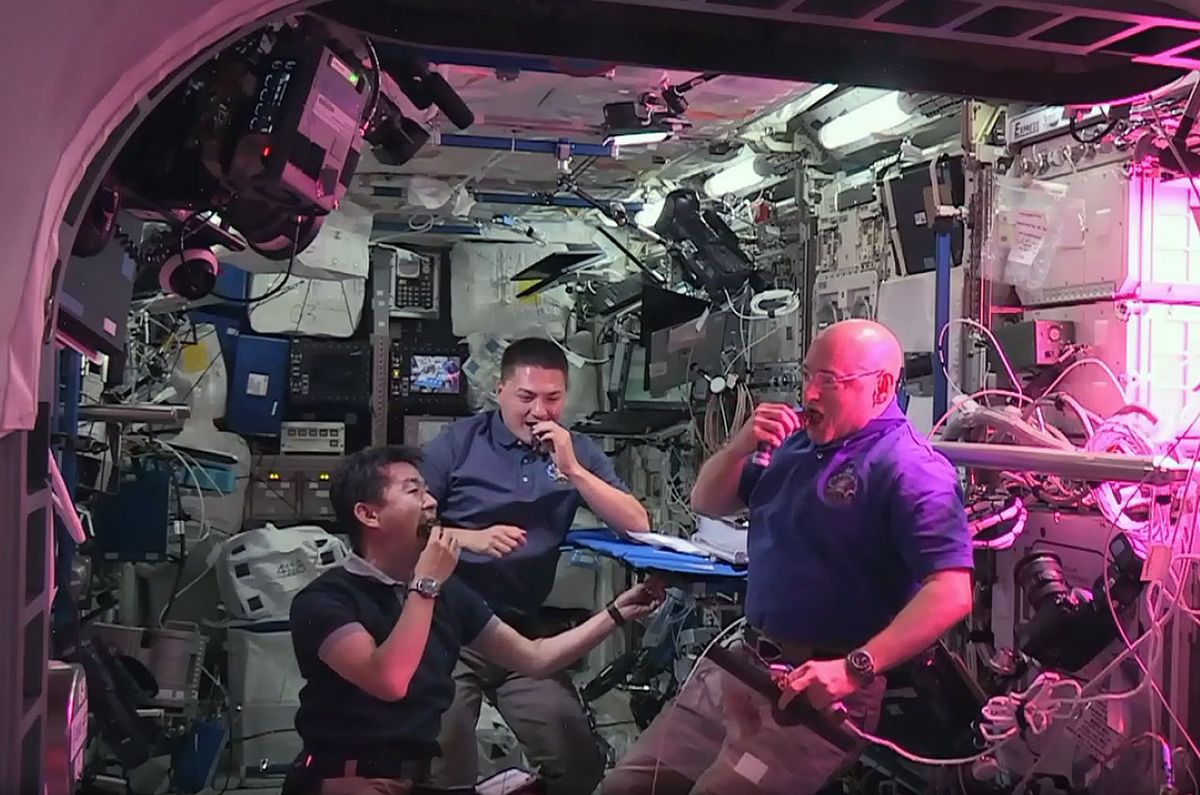An enhanced in-space eating regimen augmented with fruits, greens and fish might assist enhance astronaut well being and efficiency, a brand new research finds.
Spaceflight poses many dangers to astronauts, together with elevated radiation publicity and the extended results of microgravity. A nutritious eating regimen and common train might help astronauts overcome these well being challenges, however space missions are severely weight-limited and “meals has one of many highest mass necessities in spaceflight,” research lead creator Grace Douglas, a meals scientist at NASA’s Johnson Area Middle in Houston, instructed Area.com.
The present eating regimen for astronauts dwelling on the International Space Station (ISS) is designed to produce nutritionally full meals. Nonetheless, “all meals for space needs to be processed for shelf stability at room temperature,” Douglas stated — that’s, capable of survive on cabinets for lengthy instances at room temperature with out spoiling. “Most wholesome vegetables and fruit are usually not consumed this manner.”
Associated: Food in space: What do astronauts eat?
Within the new research, “we have been capable of develop a greater variety of spaceflight-compatible vegetables and fruit and supply them at a better stage within the meals,” Douglas stated. She and her group used these things to assist construct an enhanced eating regimen with extra servings and a better number of vegetables and fruit, in addition to extra fish, tomato-rich gadgets and different rations wealthy in important vitamins reminiscent of flavonoids and omega-3 fatty acids.
The researchers investigated the completely different results the present ISS eating regimen and the improved spaceflight diet had on six girls and 10 males. These 16 individuals every ate both one eating regimen or the opposite whereas they took half in 45-day missions in an Earth-based closed chamber designed to simulate confined spaceflight environments.
The scientists discovered that volunteers on the improved eating regimen possessed decrease ranges of ldl cholesterol and the stress hormone cortisol. In addition they carried out higher when it comes to velocity, accuracy and a spotlight on a easy online game designed to check their psychological efficiency. Furthermore, their intestine microbiome — the neighborhood of microbes that naturally lives in our digestive tracts — stayed extra various and wealthy, an indication of excellent well being, than in volunteers on the usual eating regimen.
“We present advantages related to eating regimen in lower than 45 days, which exhibits how essential eating regimen is to well being and efficiency,” Douglas stated. “Astronauts must carry out at very excessive cognitive and bodily ranges, and this data is vital as we plan sources for upcoming missions.”
The scientists at the moment are testing this eating regimen on missions in space, Douglas stated.
“NASA is fascinated about how meals mass will be lower, however first we’ve got to grasp how meals is interacting with well being and efficiency on these missions, after which how cuts could influence well being and efficiency,” Douglas stated. “Extra car mass could also be wanted for meals to help well being and efficiency, particularly as missions turn into longer and [go] farther from Earth.”
Douglas and her colleagues detailed their findings (opens in new tab) on-line Dec. 15 within the journal Scientific Studies.
Comply with us on Twitter @Spacedotcom (opens in new tab) and on Facebook (opens in new tab).

